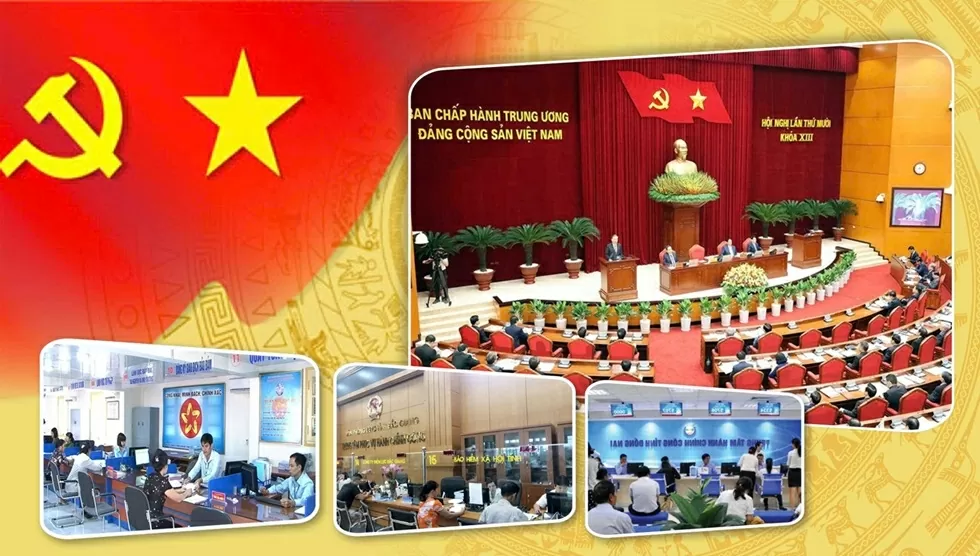 |
| The draft Political Report submitted to the 14th National Party Congress was very correct in placing the task of 'building and synchronously perfecting institutions for rapid and sustainable national development' at the top. (Source: VGP) |
Competition between nations today, in the end, is competition over institutions. Whoever has better institutions can mobilize resources faster, more abundantly, use them more effectively, and innovate more strongly. Institutions are considered "soft infrastructure" that can determine the effectiveness of all "hard infrastructure"; they are the "operating system" of a nation, shaping productivity, speed, and quality of development.
After nearly four decades of Doi Moi, Vietnam has achieved many great successes. But as traditional resources – such as cheap labor, foreign investment capital or available natural resources – are gradually reaching their limits, institutions have become the most important resource for the country to enter a new stage of development.
In that context, the Draft Political Report submitted to the 14th National Party Congress was very correct in placing the task of "building and perfecting a synchronous institution for rapid and sustainable national development" at the top. However, to turn the "bottleneck of bottlenecks" into a true "breakthrough of breakthroughs", into a competitive advantage for Vietnam, the Report needs to be deepened in four aspects:
1. Clarify the concept of "institution" - because only when understood correctly can we reform correctly;
2. Clearly identify the three organic components of institutions – formal norms, informal standards and enforcement mechanisms;
3. Assessing Vietnam's institutional position in international competition – to know where we are;
4. On that basis, design a comprehensive, synchronous and feasible institutional reform strategy.
CLARIFICATION OF CONCEPTS AND STRUCTURES OF INSTITUTIONS
To effectively reform institutions, we must first correctly understand and evaluate its role.
In modern political science and economics , institutions are not only laws, but also a system of formal and informal rules and enforcement mechanisms to coordinate the behavior of subjects in society. We can briefly define institutions as follows: "Institutions are the sum of formal rules (legal norms), informal norms (values, ethics, customs, beliefs, principles) and mechanisms to enforce those rules and norms, to coordinate social behavior, maintain order and promote development".
In other words, the institution is the operating system of the country – where law, culture and administrative apparatus are organically related to ensure order, justice and development. A "healthy" institution cannot rely solely on legal documents, but must be supported by social ethics and fair enforcement.
Thus, the institution is made up of three organically connected parts:
First, the formal norms – that is, the legal system (Constitution, codes, laws, decrees, regulations, resolutions, public policies). This is the "visible" part of the institution, the official source code of the national operating system.
Second, informal norms – including values, ethics, beliefs, customs, habits and public service culture. This is the “invisible” part but has profound influence, is the “social source code” that guides behavior and reinforces beliefs.
Third, the enforcement mechanism – including organizational structure, operating procedures, human capacity, technology and monitoring and sanctioning mechanisms. This is the "circulatory system" that helps turn regulations into behavior, turning policies into results.
These three components do not exist separately, but interact organically, forming the soul of the institution. Laws are only meaningful when confirmed by social norms; social norms are only strong when reinforced by laws and enforcement mechanisms; and enforcement mechanisms are only fair when both law and society uphold the value of integrity.
If the law is correct but society is used to "circumventing the law" and "refuses the law", the law will have difficulty being effective. If the public apparatus operates according to "lubrication standards", the law will be distorted and people will lose faith.
It is the harmonious resonance between these three components that is the foundation for an institution to operate smoothly, with the capacity to self-learn, self-adjust and self-renew.
POSITIONING VIETNAM'S INSTITUTIONAL CAPACITY IN INTERNATIONAL COMPETITION
Global competition today is a race of institutional capacity – the capacity of national apparatus to organize, operate and respond.
In the region, Singapore has risen to the top of Asia not because of its resources, but because of its integrity, strong rule of law and effective administration. South Korea has succeeded because of its innovative institutions, learning from data and responding quickly to practice. Indonesia, Malaysia and Thailand are accelerating administrative reform, strong decentralization and digital transformation of public administration.
Compared with these countries, Vietnam has the advantage of political stability, a dynamic society, and a strong desire to rise, but institutional capacity has not yet become a real competitive advantage.
The legal system is still overlapping, the cost of compliance is high; informal norms still contain many obstacles such as the "ask-give" mentality, "cronyism", "avoiding responsibility"; the enforcement mechanism is not really transparent, lacks accountability and policy response is slow. In other words, our current institutions are only potential advantages, not actual advantages.
To move forward, Vietnam needs to put institutional capacity on par with technological, human and innovation capacity.
The three strategic goals we need to aim for are:
1. Speed up institutional response – policies are issued quickly, implemented effectively, and adjusted promptly;
3. Reduce institutional costs – including transaction costs, compliance costs and “informal” costs;
3. Increase institutional trust – so that people, businesses and civil servants can trust in the fairness and transparency of the system.
To measure and motivate reform, Vietnam should develop a Vietnam Institutional Competitiveness Index (VICI), measuring three groups of criteria: 1. Quality of official regulations; 2. Social norms and institutional culture; 3. Effectiveness of enforcement mechanisms.
The annual publication of VICI will create a “healthy race” among ministries, sectors and localities – a race not about the speed of spending, but about the speed of reform and governance capacity. If that can be done, Vietnam can aim to be among the leading countries in ASEAN in terms of institutional capacity by 2045, and in the top 40 in the world in terms of public administration efficiency.
COMPREHENSIVE INSTITUTIONAL REFORM STRATEGY IN THREE COMPONENTS
Institutional reform must be comprehensive and synchronous, because reforming one component while neglecting the other two will only create "lame" institutions. Below are the strategic reform orientations for those components:
1. Reform the official regulatory system - perfect the country's "source code": Review the entire legal system, eliminate outdated, overlapping, and contradictory regulations. Shift the focus of state management from pre-audit to post-audit, create space for creativity and reduce administrative burdens for businesses and people. Institutionalize institutional impact assessment (IIA) before issuing policies. Apply digital technology and artificial intelligence to develop "machine-readable laws" and open legal databases. Establish a "budget ceiling for adjustment" mechanism, forcing each agency to abolish a number of corresponding old regulations when issuing new regulations, avoiding "legal bloat".
2. Reforming the informal norm system – creating an institutional culture of integrity: Clearly identify social norms that govern behavior, classify positive values (integrity, loyalty, trust, etc.) and negative values (asking and giving, cronyism, contentment, avoiding responsibility, insensitivity, etc.). Promote positive norms through education, communication and public service training. Develop an Integrity and Social Trust Index, publish it periodically. Institutionalize public service ethics as a mandatory criterion in evaluating officials. And most importantly, strengthen institutional trust – because when people believe that the law is enforced fairly, they will voluntarily comply, turning compliance with the law into a natural behavior.
3. Perfecting the enforcement mechanism - modernizing the apparatus and public service responsibilities: Applying the "6 clear" principle (clear people, clear work, clear responsibilities, clear authority, clear deadlines, clear results) to the entire administrative system. Implementing public administration based on outputs (outcome-based governance), instead of just processes. Building a national institutional Dashboard, monitoring policy implementation progress in real time. Establishing a quick policy feedback mechanism, ensuring that all policies are "learned" and continuously adjusted. Training a new generation of civil servants - who know how to serve, know how to be creative and dare to take responsibility - so that the enforcement apparatus becomes a pillar of social trust.
INSTITUTIONS: THE SOUL AND CAPACITY OF THE NATION
Institutions are the soul of a modern nation. They determine the speed of development, the quality of growth and the sustainability of all achievements. A nation may not be rich in resources, but if it has transparent, honest and effective institutions, it can still rise to power. On the contrary, even if it has abundant resources, if its institutions are stagnant and poorly adapted, all efforts will be wasted.
After the 1986 Doi Moi, Vietnam changed its economic face. Now, the second Doi Moi – with its institutional focus – is the historic mission of today’s generation, not only to improve the law, but to upgrade the entire national operating system: more transparent laws, more honest society, fairer and more efficient apparatus.
Institutions are not just frameworks – they are the capacity, the belief, the pride of the nation. When the people’s belief is combined with the Party’s wisdom and the apparatus’ capacity in a transparent, humane and effective institution, Vietnam will truly enter an era of growth – an era of a strong, prosperous and sustainable nation.
Source: https://baoquocte.vn/gop-y-du-thao-bao-cao-chinh-tri-dai-hoi-xiv-cua-dang-bien-the-che-thanh-loi-the-canh-tranh-cua-viet-nam-333284.html



![[Photo] The road connecting Dong Nai with Ho Chi Minh City is still unfinished after 5 years of construction.](https://vphoto.vietnam.vn/thumb/1200x675/vietnam/resource/IMAGE/2025/11/04/1762241675985_ndo_br_dji-20251104104418-0635-d-resize-1295-jpg.webp)

![[Photo] Ho Chi Minh City Youth Take Action for a Cleaner Environment](https://vphoto.vietnam.vn/thumb/1200x675/vietnam/resource/IMAGE/2025/11/04/1762233574890_550816358-1108586934787014-6430522970717297480-n-1-jpg.webp)
![[Photo] Ca Mau "struggling" to cope with the highest tide of the year, forecast to exceed alert level 3](https://vphoto.vietnam.vn/thumb/1200x675/vietnam/resource/IMAGE/2025/11/04/1762235371445_ndo_br_trieu-cuong-2-6486-jpg.webp)
![[Photo] Panorama of the Patriotic Emulation Congress of Nhan Dan Newspaper for the period 2025-2030](https://vphoto.vietnam.vn/thumb/1200x675/vietnam/resource/IMAGE/2025/11/04/1762252775462_ndo_br_dhthiduayeuncbaond-6125-jpg.webp)




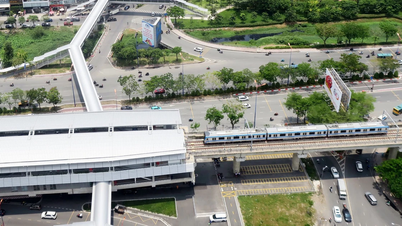



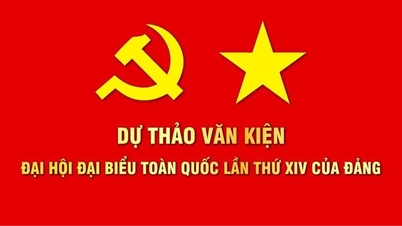

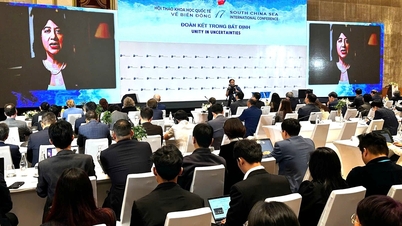


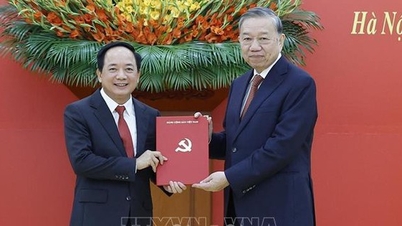



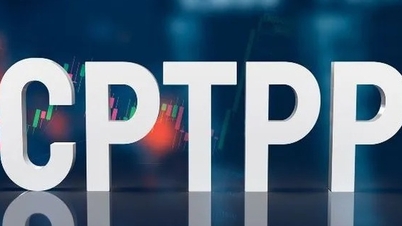






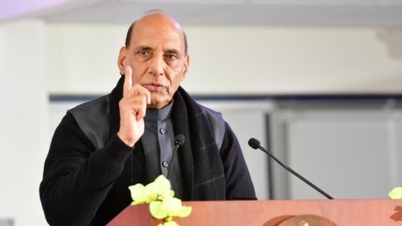








































































Comment (0)